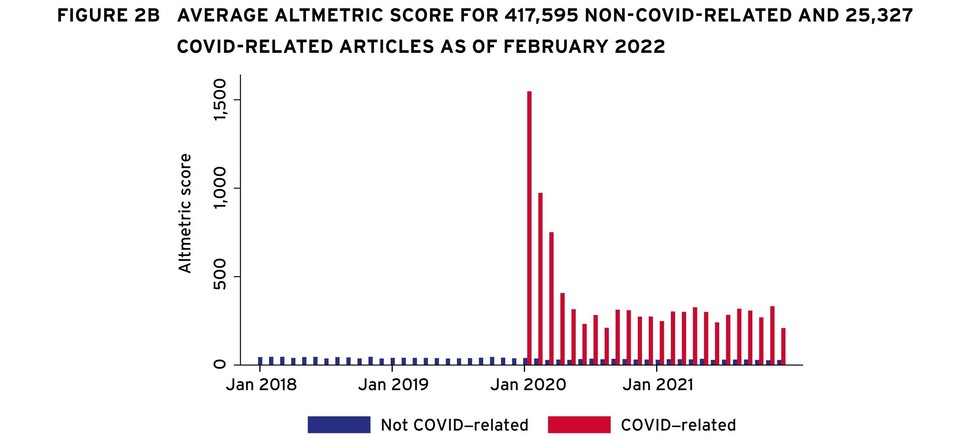We are excited to announce the publication of a study by Karin Hoisl, Carolin Lerchenmüller, Marc Lerchenmüller, and Leo Schmallenbach as a chapter of the CEPR eBook “Resilience and Ingenuity: Global Innovation Responses to Covid-19”.
You can find the entire eBook, edited by Carsten Fink, Yann Ménière, Andrew A. Toole and Reinhilde Veugelers, here: https://voxeu.org/content/resilience-and-ingenuity-global-innovation-responses-covid-19.
Across 18 chapters it untangles how the COVID shock shaped the innovation landscape of the world’s major economies, and how scientists, entrepreneurs and creative professionals responded to the crisis.
In their chapter, Karin, Carolin, Marc and Leo address two main questions:
1) To what extent has the attention to certain research content shifted during the first months of the COVID-19 pandemic?
2) What group is responsible for shifts of attention?
Using „altmetrics“, an attention metric for scientific publications, the authors first document that COVID research garnered a disproportionate amount of attention during the past months. The average COVID article received 10 times more attention than the average non-COVID article (from the same journal). In the early days of the pandemic this difference was even larger.
Next, the authors compare the change of attention to life science research from 2019 (pre-COVID) to 2020 (COVID) across different fields. They find that some fields have garnered significantly more attention in 2020 vs. 2019, while others have suffered severe reductions.
Finally, the authors show that the increase in attention to COVID-research is present across different groups of the audience (members of the public, scientists, practitioners, and science communicators), but strongest for members of the public. At the same time, the reduction of attention to non-COVID research is smallest among scientists.
The authors conclude that it is still too early to evaluate whether the focus on COVID research has affected science more broadly. Still, the observed shifts in attention may imprint long-term effects on the direction of science, e.g., through allocation of funding or cumulative knowledge building. It will be interesting to see whether the shifts in science „consumption“ today shape science „production“ tomorrow. Studying long-term effects is an important task for future research and the authors hope that their study can serve as starting point for this endeavor.
